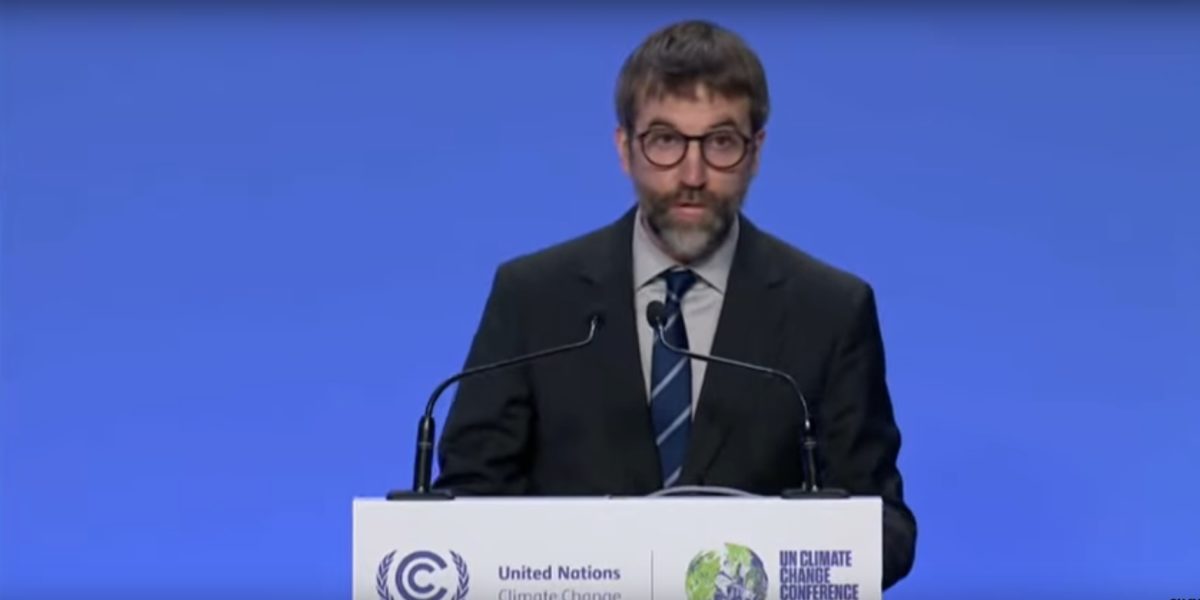Canada’s Minister of the Environment, Steven Guilbeault, joined other world leaders in Egypt’s Sharm El Sheikh, a secluded luxury resort town on the Red Sea, for the United Nations Conference on Climate Change, COP27. The impact of climate change on the long-term viability of vulnerable communities, as well as issues related to food and water security, and the future of energy will be central to COP27’s discussions this year.
In spite of the fact that combating climate change should be everyone’s top priority, the COP27 meeting has drawn criticism for the human rights and environmental records of its host country. To further silence dissidents, Egypt has limited the ability of activists and environmental groups to gain accreditation and enter the country. As a platform for African activists to speak up for communities ravaged by drought, floods, and fossil fuel projects, COP27 has been dubbed the “African COP.” However, only 20 per cent of African activists have been accepted. Worse still, Egyptian authorities detained a recently arrived activist for leading a walk to raise awareness of the climate crisis.
Egypt has a terrible track record in protecting the environment. Recent highways and overpasses have been built in the place of centuries-old trees, effectively severing historic districts from their surrounding neighbourhoods. The Nile, the country’s primary water source, is in jeopardy as a result of the Ethiopian Renaissance Dam. Unprecedented levels of youth unemployment and a population explosion. The ongoing conflict between Russia and Ukraine has threatened Egypt with a serious food crisis. Swimming pools and miniature golf courses are springing up in gated communities alongside those without access to running water. The Egyptian government is depopulating El-Warak Island, once a haven for biodiversity, in order to sell it to foreign investors who promise to turn it into an entertainment park.
To appease President Sisi, COP27 was be held in Egypt, but this decision will not make Egypt a leader in environmental policy, and it will not improve the Egyptian economy or the standard of living, which have both been in steady decline since the 2013 military coup that resulted in the deaths of hundreds of people and the poor economic policies implemented in the years since.
Understandably, a Canadian presence is required to advocate for our environmental vision. But has Ottawa taken any action to tie their involvement to the advancement of human rights? Over the years, Canada has missed a number of opportunities to push Egypt to improve, beginning with the release of political prisoners.
Canada remains largely silent. Even though many Canadians have been arbitrarily detained in Egypt since 2013, Canada has turned a blind eye to the gross human rights violations documented by human rights groups. Canada, even worse, is attempting to deport an Egyptian human rights activist back to Egypt.
Today, an estimated 60,000 political prisoners are being held arbitrarily. Not to mention those who have been subjected to forcible disappearances and extrajudicial killings. Egypt has built 78 prisons as of 2021, for which Amnesty International has criticized the country for subjecting detainees to cruel and inhumane conditions, a reality that contradicts the government’s claims of progress on human rights.
“No amount of PR can hide the country’s abysmal human rights record, that demands real reform from the government,” said Agnès Callamard, the secretary general of Amnesty International.
Residents of Sharm El Sheikh report that authorities have increased security and harassed them in preparation for COP27. A nationwide call for peaceful demonstrations on November 11 has led to the arrests of “could be protesters” across the country. Global Affairs has raised its risk level, advising Canadians to exercise extreme caution in Egypt due to the volatile security situation.
By agreeing to hold COP27 in Egypt and greenwashing Egypt’s human rights record, the international community made a mistake. However, since it is already happening, Minister Guilbeault should uphold Canada’s longstanding reputation as a defender of democracy and human rights by showing his support for the Egyptian people’s right to express themselves freely and openly. This is the message he should deliver to President Sisi at COP27.
Ehab Lotayef and Samaa Elibyari are board members of the Egyptian Canadian Coalition for Democracy (ECCD). Ehab is a poet, writer, community activist and IT Manager at McGill University. Samaa is a member of the Canadian Council of Muslim Women.



